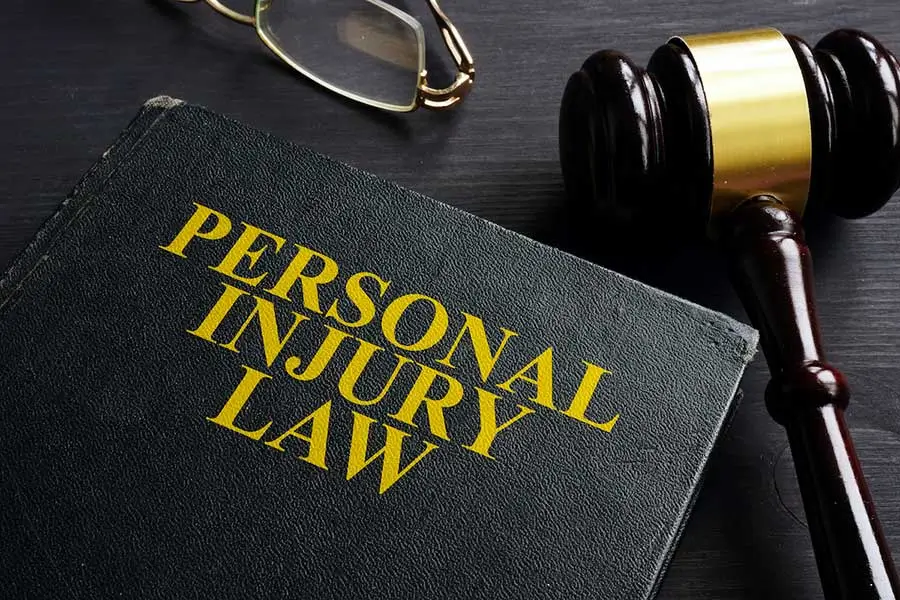Bodily Injury vs Personal Injury: What’s the Difference?
By: Simon Law | May 19, 2022

When initiating a personal injury case, it is common to see many terms thrown around that sound similar but have different meanings. In cases of car accidents, you will likely hear personal injury and bodily injury, as these are common categories of injuries, but also types of insurances most drivers carry. In this blog, we will explain personal and bodily injury in the sense of the law and insurance, give examples of each, and show how they are different yet related.
What is Personal Injury?
Personal injury can describe the type of tort case that is filed following a car accident. In these cases, there is a person who was injured, called the plaintiff, who sues the person who injured them, called the defendant. Most personal injury cases will involve claims of negligence and request compensation for medical bills, out-of-pocket expenses, lost wages, pain and suffering, and more. Personal injury insurance, also known as personal injury protection, is a type of plan that covers costs for injuries regardless of who is at fault, meaning for yourself or the other person, or people, who were injured in the accident. These plans can help to pay medical costs, funeral costs, and sometimes lost wages.
What is Bodily Injury?
Bodily injury can describe the types of injuries sustained in car accidents, which include broken bones, traumatic brain injuries, disfigurement, death, and more. Nearly any type of diagnosable injury is included in the umbrella term of ‘bodily injury’. Bodily injury insurance, similar to that of personal injury insurance, is a type of plan that pays for medical bills and related costs. Of note, however, unlike personal injury insurance which can be used to pay your bills and another’s regardless of who was at fault, bodily injury insurance is used to pay the party who is not at fault for the accident.
For example, if you get in a car accident and the other driver is found to have caused the accident, you can receive money for medical costs from that person’s bodily injury insurance coverage. Alternatively, if you are at fault for the accident, you cannot use your bodily injury coverage to help pay for your medical costs. You must use your personal injury coverage.
Why Have Two Similar Coverage Plans?
Although the two coverage plans are similar in many respects, including what they will pay for, the key difference is to whom they will pay. As noted, personal injury coverage will pay you and a third party no matter who is at fault for the accident between you and that third party. Bodily injury coverage, however, will only pay the person who is not liable, so this may only pay the third party if you are liable for the accident. Importantly, this can all come together when a personal injury civil case is filed following an accident. For example:
Person A is involved in a car accident with Person B and Person A files a personal injury lawsuit saying Person B is liable. During the case, Person B admits liability and wishes to settle with Person A. Person B has personal injury insurance of $25,000.00 and bodily injury insurance of $25,000.00. Person A accepts this amount, and the case is settled and dismissed.
In this scenario, Person A is lucky to have had Person B admit liability and have bodily injury coverage. Since Person B admitted liability, their bodily injury coverage can be used to pay Person A. Further, Person B’s bodily injury coverage helped save them time because the two coverages helped settle the case – if they did not have bodily injury coverage, it is possible Person A would not have settled since the value would have been cut in half. Having both can save all parties time and money but can also be helpful even if you are the person liable for the accident.
Getting Representation for Your Personal Injuries
Insurance coverage can be a tricky issue to fully grasp. Having the help of the St. Louis personal injury attorneys at The Simon Law Firm, P.C. by your side is a great aid to guide you through the confusing litigation process. Our personal injury attorneys have decades of experience fighting for the highest compensation on all cases, and our deep knowledge of the law and insurance matters gives us and our clients the confidence needed to successfully litigate these cases. If you or a loved one has been injured due to someone’s negligence, contact us today for a free, confidential consultation.


